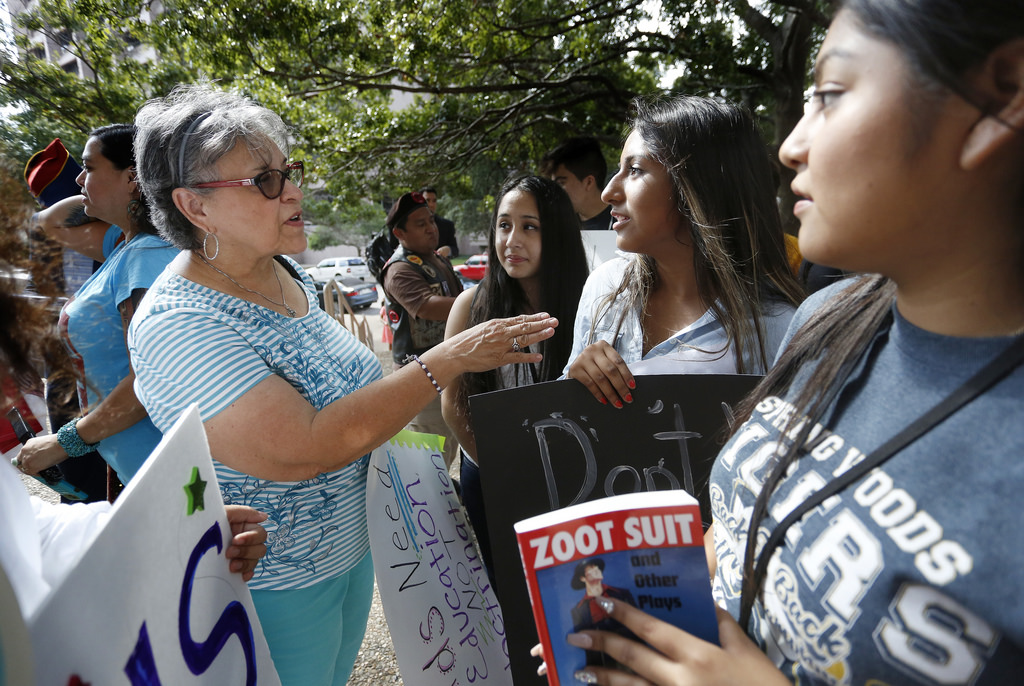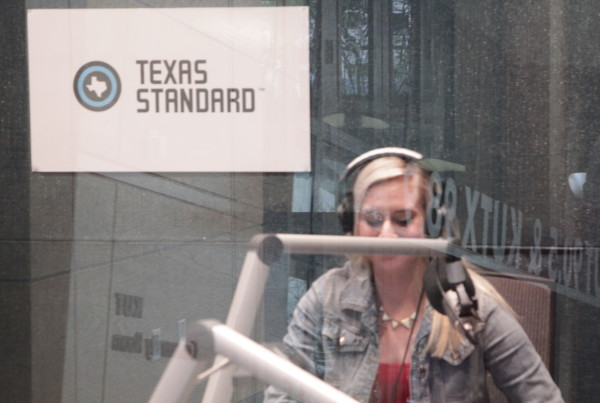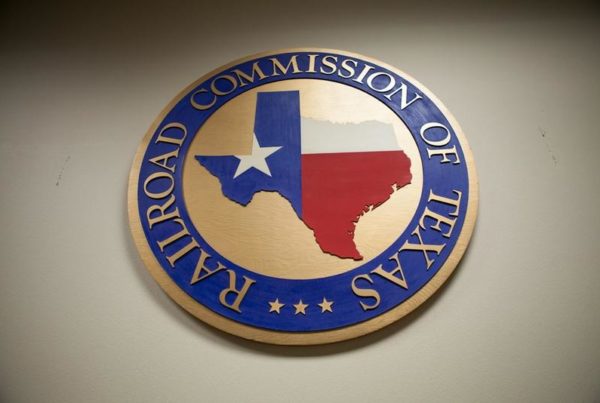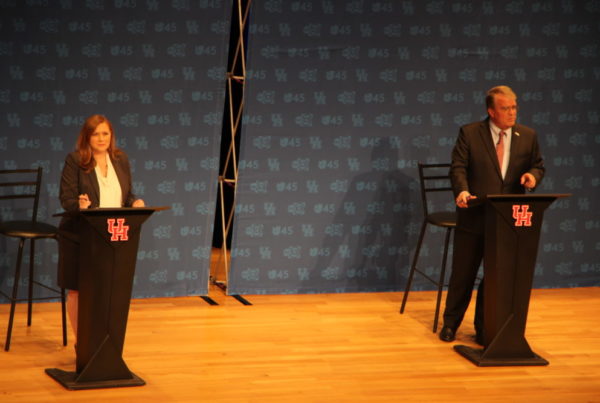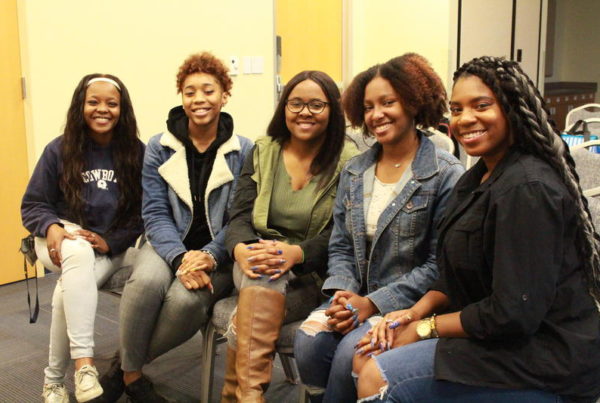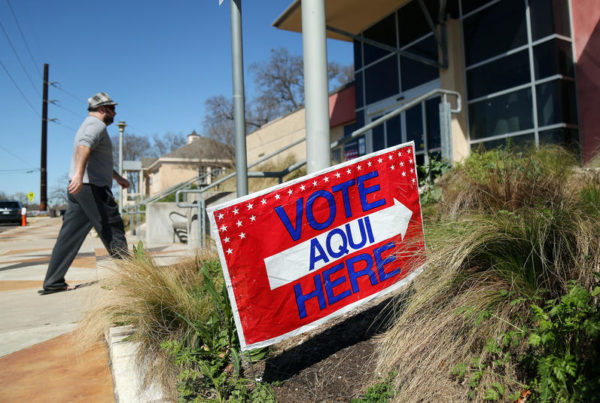Heading into Election Day Tuesday, there’s a lot on the minds of Texas’ some 1.1 million current and retired public educators. As part of our Texas Decides series, we checked in with Texas teachers and education advocates about some of their concerns as they go out and vote.
Texas candidates on both sides of the aisle have been making their case for public education. And teachers are listening carefully – especially when it comes to reforming the state’s school finance system, raising teacher pay and addressing billion dollar shortfalls in the Teacher Retirement System healthcare and pension plans.
“The issue is how to make that solvent,” says Brandon Rottinghaus, a political science professor at the University of Houston.
He says, when it comes to funding Texas public schools, candidates and lawmakers agree: They want schools to have enough money to provide quality education. But what that actually looks like is far harder to agree on.
“Persistent fights over how much money to put into the public education system has really defined many of the campaigns that we’ve seen statewide in this cycle, but also in prior cycles as well,” Rottinghaus says.
On the last Saturday of October, the Texas State Teachers Association, or TSTA, organized dozens of teachers across the state to turn out and vote early. Specifically, for candidates the group says put public education first – endorsing mostly Democrats.
At Del Valle ISD, near Austin, dozens of school teachers gathered in the high school parking lot, preparing to walk to a nearby polling location.. 26-year-old geography teacher George Flores is voting in his first mid-term election. He says he was inspired last year by teacher strikes and rallies at statehouses across the country.
“I didn’t realize until I started teaching that most of the influence can be done at the state and local level,” Flores says.
He says, as a teacher in the Austin area, one of his biggest concerns is getting paid enough to make ends meet.
“Teacher pay and also, pay for our hourly workers. It’s not enough for them,” he says. “Especially living in a city like Austin with high housing mortgages, like, the pay isn’t enough and if we want to keep our hard workers here… the talented… they gotta be paid for.”
Flores says he’ll be voting for Democratic candidates like Mike Collier, who’s running for Lt. Governor.
Collier’s been campaigning in public schools. Last week, he toured a high school in Taylor, Texas, with other local and state officials.
He says public education is a top priority.
“That’s why I’m running for Lt. Gov….I’m trying to turn this election cycle into not Democrat versus Republican but pro-public education…which is who I represent v. the others,” Collier says.
On the campaign trail, Collier is focused on fixing school finance. In 2014, the Texas Supreme Court said the current system was “broken” but not unconstitutional. The Texas legislature hasn’t found a comprehensive fix – and failed to pass school finance reform last session.
Collier says he’s hoping teachers frustrated about school finance will rally behind his campaign over what he calls Republican Lt. Gov. Dan Patrick’s failed education leadership.
“During the session he wasted everybody’s time with bathrooms, to distract them from the fact that he cannot, will not, solve the fundamental problems in the state,” Collier says.
Patrick’s campaign did not return a request for an interview for this story. But Patrick touted his efforts to pay teachers more. He released this ad in October.
“Last year, I proposed to increase teacher pay by an average of $10,000. It’s my priority, it’s the best thing for our kids, and it’s the right thing to do,” he said in the ad.
Patrick is also highlighting his efforts to infuse the troubled Teacher Retirement System with hundreds of millions of dollars during the last regular and special legislative session.
Of course, this isn’t the only Texas race where education is a primary issue.
In one of the closest state Senate races – District 10 in Tarrant County – both Democrat Beverly Powell and incumbent Republican Konni Burton have strongly criticized each other for their polar-opposite opinions on school funding and vouchers.
In general, though, Brandon Rottinghaus says these aren’t the issues that drive your average voter to the polls.
“Most people are not terribly aware of how the school finance system works,” Rottinghaus says. “They may have a sense that it’s not working well but they don’t necessarily understand all of the levers to be able to make some inferences about who is better to lead that.”
But, he says, the public school teachers and ed advocates that do focus on this, have influence that extends beyond whatever happens Tuesday.
“We’ve seen teachers be a major force for making their political views known and if it’s the case that that unity can coalesce around a few issues, then it could be consequential in future elections,” Rottinghaus says.
Teacher retirement and pension shortfalls are just two of the major education policy issues that state lawmakers will be addressing this upcoming legislative session.
Also likely are debates over school choice, special education funding, school safety and standardized testing.


